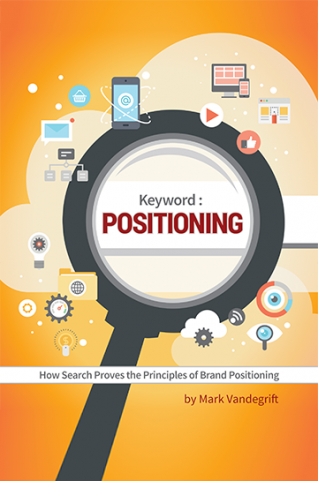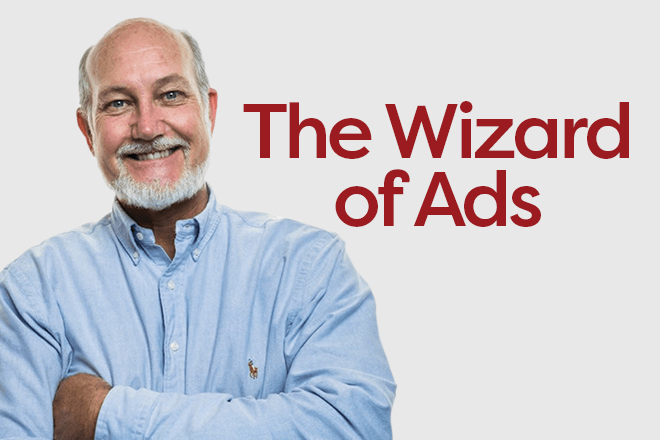One of the great positionists of our time is Roy Williams. Known as “The Wizard of Ads,” we’ll be connecting soon on our Brand Shorthand podcast. His Monday Morning Memos® are famous, and they put recent podcasters to shame. He has been producing his memos weekly since 1994 — a 30-year run. Very few content marketers have that level of fortitude! This missive on writing persuasive ads should be in the Advertising Hall of Fame.
Roy’s quips are timely, and his wisdom is timeless. One of his good friends recently sent me a link to a 2007 post: “Why Most Ads Don’t Work.” I found the content brilliant, and even more applicable to the world in which we live today. With the proliferation of media and the incessant need to produce ad after ad after ad, his advice on writing persuasive ads is worthy of our attention.
His headline is all at once instructive and damning: “Most ads aren’t written to persuade, they’re written not to offend.” We see this in most copywriting from ads to news releases to websites and more. Most copy is descriptive or technical, almost like you’re writing to get a grade from your high school English teacher or college professor. Ads need to persuade. News releases need to persuade. Websites need to persuade. Social media ads must persuade. All marketing content must persuade. Writing persuasive ads should be a built-in skill of the advertising workforce.
When you write content to persuade, the goal is to trigger an action. That might be to gain a click on a Google text ad, open an envelope, or peruse past the cover of a brochure. In Williams’ content, he makes this point by pointing out that ads that don’t work never trigger the next step: a phone call, email, or perhaps today, a QR code scan or web visit. And most critically, not a sale.
Understandably, offense is not a desired attribute today. In our cancel culture, offense is a risk. In our positioning space, we hear marketers say that playing brand politics might offend their competition. Guess what?!? Branding is marketing warfare (with a nod to the late, great Jack Trout). Writing persuasive ads means offense. Getting attention means offense. Winning in business means offense. Stealing market share means offense. Becoming a leader means offense.
Here's the risk of not offending according to Williams: ‘The customers who cost you money are the ones you never see; the ones who don’t come in because your ads never got their attention.’
His memo includes four mistakes most frequently made when developing content:
Demanding “Polished and Professional” Ads: the most frequently used creative brief word is “professional.” “Make this ad professional.” “Make this website look professional.” “Design a professional logo.” Really? Because I was thinking we’d go unprofessional this time around. Williams’ point? To break through to the Broca area of the brain (where we sit up and pay attention), marketing can’t be predictable.
Informing without Persuading: reference my point above about writing for your college professor. We don’t need more instructional and educational language. We need marketing that sells. Convey your position and answer the question, “Why should my customer buy my brand instead of my competitor’s brand?”
Entertaining without Persuading: simply reference Super Bowl ads for this mistake. They are the most entertaining in the world, but five minutes after the commercial, you can’t name the brand, and you’ll be lucky if you can name the product that was being advertised!
Decorating without Persuading: a pretty ad is not what sells products. What sells is a well-designed ad that has a differentiated message with differentiated creative. Creative for creative’s sake is worthless. Cute and clever is as well. Only well-positioned, persuasive content will do your company any good.
There is no way to summarize Williams' work in one article. Hopefully you have been persuaded to read his memo, “Why Most Ads Don’t Work,” and then run out and buy his books, because they are instructive, and prescient given the malaise of marketing we find in 2023. If you haven’t read his books, buy them. If you haven’t read “Why Most Ads Don’t Work” memo, read it here. And if you need help understanding why this all matters, contact Innis Maggiore today.



